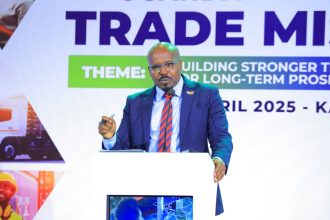Dodoma, Tanzania – The Tanzanian Parliament has approved the government’s budget for the financial year 2024/2025, amounting to TSh 49.35 trillion. The budget was passed with significant focus on supporting local contractors and addressing the grievances of retirees who had been underpaid due to a new calculation method.
On June 26, 2024, Parliament voted on the national budget, with 362 out of 381 members voting in favor, representing 92.3% approval. There were no votes against, and 18 members abstained.
Key Areas of Focus
Supporting Local Contractors and Retirees
The new financial year, beginning July 1, will see the government prioritizing the settlement of debts owed to local contractors and retirees. Minister of Finance, Dr. Mwigulu Nchemba, highlighted that the government is working on a specific plan to ensure these payments are made. The government has been steadily increasing the allocation for these payments, with TSh 200 billion allocated initially, TSh 400 billion last year, and TSh 600 billion this year.
Addressing Criminality and Mismanagement
Dr. Nchemba also emphasized the government’s commitment to tackling corruption and mismanagement within its ranks. Efforts are being made to collaborate with relevant agencies to ensure accountability and proper use of public funds. Dr. Nchemba acknowledged that financial mismanagement often starts at the grassroots level, with some individuals misusing Point of Sale (POS) machines for personal gain. The government is taking steps to address these issues.
Budget Allocation Adjustments
To optimize government spending, Dr. Nchemba announced that funds allocated for fuel for government vehicles would be redirected to establish gas stations in regions like Dodoma and Morogoro, with plans to expand to other cities. During the transition to gas usage, government vehicles will continue using both fuel and gas.
Tax and Levy Proposals
Regarding the proposed Sh385 levy on gas for vehicles, which many MPs argued would lead to inflation and increased living costs, Dr. Nchemba stated that the final decision would be revealed in the Finance Bill to be presented on June 27. He assured that the government is considering the feedback from MPs and experts and will address the issue thoroughly.
Budget Utilization and Sectoral Spending
Dr. Nchemba explained that adhering to the proposed amendments in the Finance Bill of 2024 would impact government expenditure and sectoral budgets. Consequently, the government plans to cut regular spending to ensure that development projects remain unaffected. He highlighted that funds initially allocated for vehicle purchases and maintenance would be significantly reduced, with the savings directed towards essential development projects such as water and electricity.
Ensuring Sustainable Sugar Production
Minister of State for Planning and Investment, Prof. Kitila Mkumbo, addressed the sugar supply issue, stating that Tanzania aims to produce 650,000 tons of sugar annually by next year. Despite a setback due to El Niño rains, which reduced production to 392,704 tons, the government is investing heavily in improving sugar production infrastructure. This includes TSh 7.2 billion for better sugarcane seeds and TSh 12.5 billion for irrigation infrastructure. The goal is to achieve self-sufficiency and eventually export sugar.
Enhancing Pension Calculations
Minister of State for Labor, Youth, Employment, and Disabled, Deogratius Ndejembi, announced an increase in the lump sum payment calculation for retirees, following President Samia Suluhu Hassan’s directive. The government has allocated TSh 155 billion to raise the lump sum from 33% to 40% for the Public Service Social Security Fund (PSSSF) and from 33% to 35% for the National Social Security Fund (NSSF). This adjustment will benefit retirees from July 2022 onwards, addressing their concerns about underpayment.
Strengthening Support for Local Contractors
Minister of Works, Innocent Bashungwa, discussed measures to support local contractors. The government is collaborating with banks to reduce the risk of loans extended to local contractors, ensuring they can start projects with advance payments. The government aims to facilitate timely payments to contractors through these arrangements, leveraging contract securities.




















